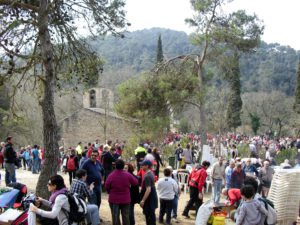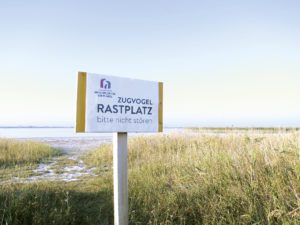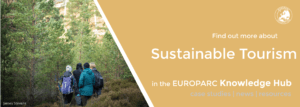New Study: Covid-19 and its impact on Europe’s Protected Areas
Overcrowding in Krkonose NP, photo by Jakub Kaspar
A new study by the FIDELIO research project in which the EUROPARC Federation contributed, analyses the impact of COVID-19 on Protected Area management and its policy implications.
New challenges for European Protected Areas
As many countries imposed lockdowns during the spring and autumn COVID waves, Parks management authorities also had to come up with new safety measures. Analysing the experiences of 14 European Protected Areas during the coronavirus pandemic, the study ‘The Impact of COVID-19 on the Management of European Protected Areas and Policy Implications‘, which was recently published in the Forests journal, identifies the biggest challenges for Europe’s parks.

Event at the Consorci Parc, Collserola
Overcrowding, new profile of visitors, problematic behavior, and conflicts between different user groups are among the most important ones. The irresponsible behaviour of newly attracted nature visitors in combination with their record-breaking numbers put unexpected pressure on the parks and their staff, naturally generating pleas for more support.
Read ‘The Impact of COVID-19 on the Management of European Protected Areas and Policy Implications‘ here!
Response of the Parks
The researchers identified some of the most effective responses to these challenges, including information campaigns, traffic management, and establishing one-way systems on trail paths.
At the same time, the study notes that these measures might be in conflict with other management measures aiming to protect wildlife and ecosystems from tourism-related disturbances.

Foto NP Neusiedler See, B. Masin
Lessons for PA management
That is why the researchers also highlight three areas in which management of Protected Areas can learn from the experience of this pandemic. These three areas are:
- managing visitor numbers in order to avoid overcrowding through careful spatial planning,
- introducing educational campaigns, particularly targeting a new profile of visitors,
- promoting sustainable tourism models, which do not rely on large visitor numbers.
Even though the covid-19 poses new challenges, it can also be seen as an opportunity to promote new and more sustainable ways to manage our protected landscapes.
About the FIDELIO project
FIDELIO (Forecasting Social Impacts of Biodiversity Conservation Policies in Europe) is a 5 year project carried out by researchers at the University of Cambridge, funded by the European Research Council. The project focuses on the effectivity of Protected Areas management – exploring complexities in their socio-ecological systems and the important role of social impacts of conservation policies. With the COVID-19 pandemic, the focus of the project shifted towards investigating the impacts of the coronavirus situation on Protected Areas.
EUROPARC was proud to take part in the research, particularly in connecting the researchers with relevant park authorities, and in facilitating workshops where the impacts, challenges, reactions and policy implications were discussed.
